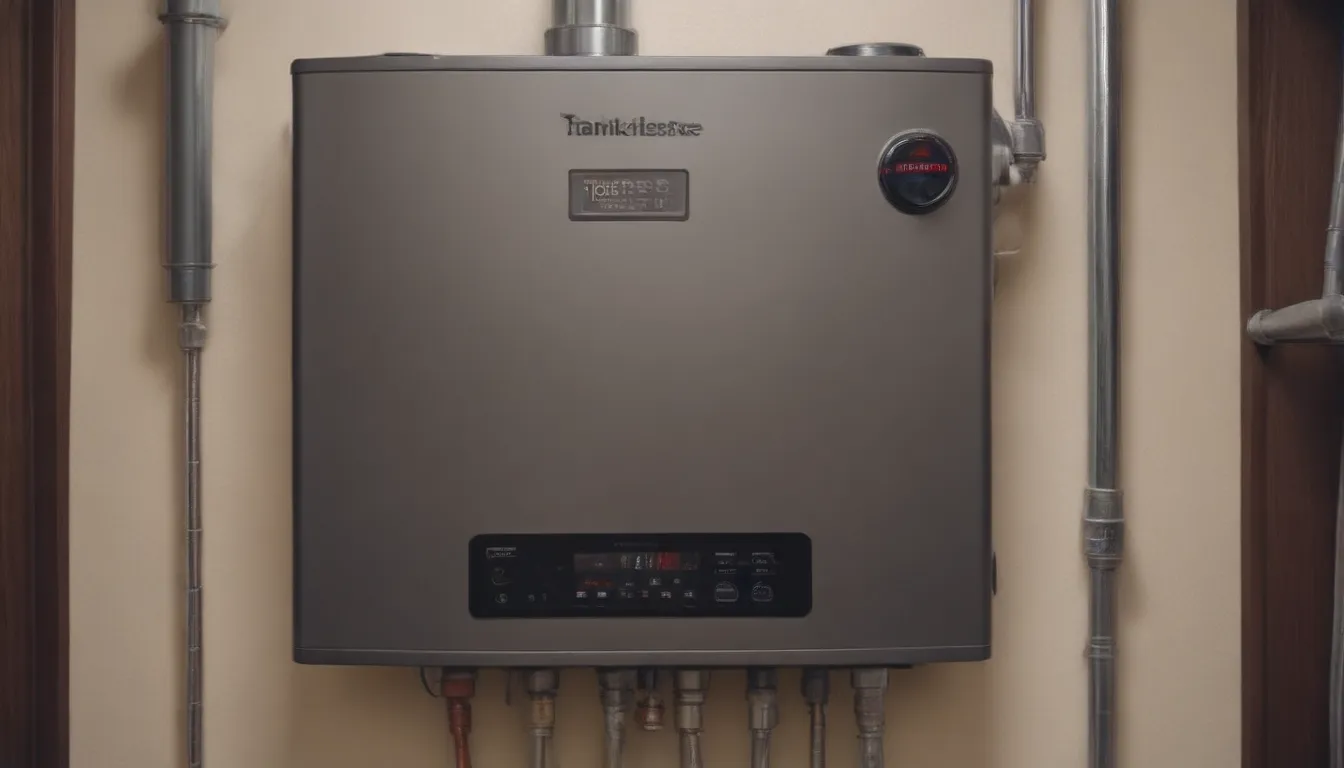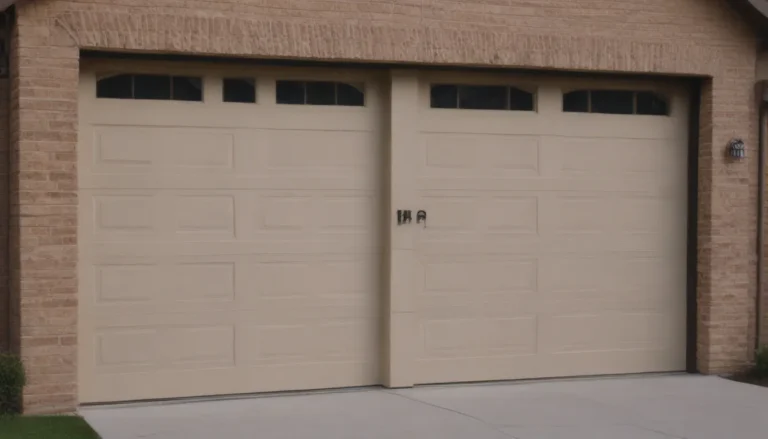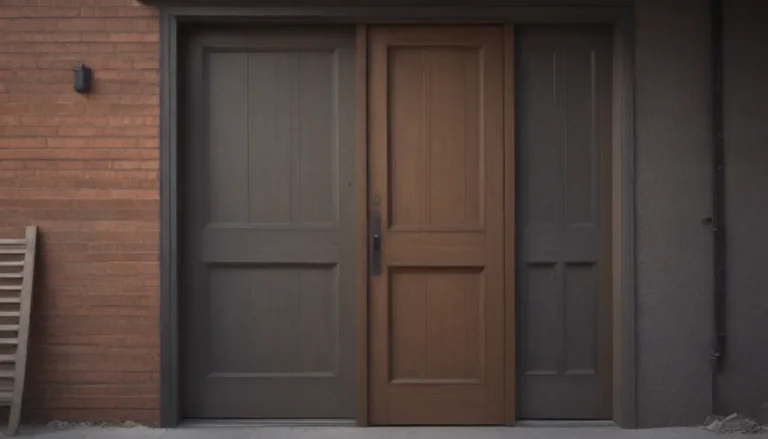Tankless vs. Tank Water Heater: What Kind Should You Buy?

Are you in the market for a new water heater but unsure whether to go with a tankless or tank option? Well, you’ve come to the right place! Today, we’ll dive deep into the world of water heaters, exploring the differences between tankless and tank models, their performance, energy efficiency, maintenance, lifespan, installation process, cost, appearance, and more. By the end of this article, you’ll have a clear understanding of which type of water heater is the right choice for your home.
Tankless vs. Tank Water Heater: Major Differences
Let’s start by looking at the key differences between tankless water heaters and tank water heaters.
Tankless Water Heater
- A tankless water heater heats water as it passes through the heater using gas or electricity.
- It consists of two heat exchangers located in the center of the unit.
- Often referred to as on-demand, instant, or instantaneous water heaters.
Tank Water Heater
- A tank water heater, also known as a storage water heater, heats water in a large tank using gas or electricity.
- The heating source is located at the bottom of the tank.
- The water is kept constantly hot, ready for use when needed.
Performance
When it comes to performance, both tankless and tank water heaters have their pros and cons.
Tankless Water Heater
- Flow rate of 2 to 5 gallons per minute (GPM) for gas models, 2 GPM for electric models.
- Delivers hot water throughout the house as fast as tank water heaters, except for point-of-use heaters.
Tank Water Heater
- Can deliver up to 80 gallons of hot water in the first hour.
- Hot water takes time to travel to the delivery point due to the location of the tank.
Best for Performance
Both tankless and tank water heaters may have a delay in delivering hot water, but tankless heaters are faster in heating water as it passes through the unit.
Energy Use and Efficiency
When it comes to energy efficiency, how do tankless and tank water heaters stack up?
Tankless Water Heater
- Up to 34% more energy-efficient than tank models in homes with lower water usage.
- Less efficient for homes with higher water usage.
Tank Water Heater
- Holds water at a set temperature throughout the day and night.
- Requires insulation to maintain heat.
Best for Energy Use and Efficiency
Tankless water heaters are the clear winner in terms of energy efficiency, offering significant savings in homes with moderate water usage.
Maintenance
Ensuring your water heater is properly maintained is key to its longevity and efficiency.
Tankless Water Heater
- Regular maintenance includes cleaning filters, inspecting the unit, and descaling as needed.
Tank Water Heater
- Requires annual flushing and cleaning to remove sediment buildup.
Best for Maintenance
Both tankless and tank water heaters require similar maintenance efforts to ensure optimal performance.
Lifespan
The lifespan of your water heater is an essential factor to consider when making a purchase decision.
Tankless Water Heater
- Can last up to 20 years with proper maintenance.
Tank Water Heater
- Typically lasts from 8 to 12 years.
Best for Lifespan
In terms of longevity, tankless water heaters have the upper hand, lasting up to 150% longer than tank water heaters.
Installation
The installation process for a water heater can vary based on the type you choose.
Tankless Water Heater
- Requires a licensed professional for installation.
- May necessitate new gas lines for proper operation.
Tank Water Heater
- Can be installed by a plumber or even DIY enthusiasts with some plumbing experience.
Best for Installation
Tank water heaters are easier to install than tankless water heaters, making them a more convenient choice for homeowners.
Cost
The cost of purchasing and installing a water heater is a significant consideration for many homeowners.
Tankless Water Heater
- Installation costs range from $1,200 to $4,250.
- Unit cost ranges from $400 to $1,200.
Tank Water Heater
- Installation costs range from $975 to $2,400.
- Various price points available for tank water heaters.
Best for Cost
Tank water heaters are more budget-friendly than tankless models, making them the ideal choice for those looking to save on upfront costs.
Appearance
The appearance of your water heater can also influence your decision-making process.
Tankless Water Heater
- Slim, flat, and wall-mounted design.
- Space-saving and aesthetically pleasing.
Tank Water Heater
- Tall, cylindrical shape with a bulkier appearance.
- Requires additional side and top clearance.
Best for Appearance
If you’re looking for a water heater that blends seamlessly into your home, a tankless model is the way to go.
Tankless vs. Tank Water Heater: How to Choose
In summary, both tankless and tank water heaters have their advantages and disadvantages.
- Tankless Water Heaters: Ideal for smaller homes with lower hot water demands.
- Tank Water Heaters: Economical and reliable for delivering hot water in large quantities.
Top Brands
When considering a new water heater, keep in mind the best brands for each type of water heater.
- Tankless Water Heaters: Best for smaller homes and energy-conscious homeowners.
- Tank Water Heaters: Perfect for those looking to save on upfront costs and installation.
In conclusion, the choice between a tankless or tank water heater ultimately depends on your specific needs, budget, and home layout. Both options have their unique benefits, so be sure to weigh the pros and cons carefully before making a decision. With this comprehensive guide, you’re now equipped to choose the perfect water heater for your home.





